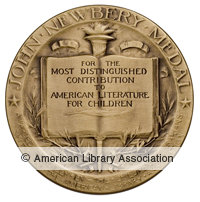Libraries know that a big fraction of their book collections never circulate, even once. The flip side of this fact is that a small fraction of a library's collection accounts for most of the circulation. This is often referred to as Zipf's law; as a physicist I prefer to think of it as another manifestation of log-normal statistics resulting a preferential attachment mechanism for reading. (English translation: "word-of-mouth".)
In my post about the value of Open Access for books, I suggested that usage statistics (circulation, downloads, etc.) are a useful proxy for the value that books generate for their readers. The logical conclusion is that the largest amount of value that can be generated from opening of the backlist comes from the books that are most used, the "all-stars" of the library, not the discount rack or the discards. If libraries are to provide funding for Open Access backlist books, shouldn't they focus their resources on the books that create the most value?
The question of course, is how the library community would ever convince publishers, who have monopolies on these books as a consequence of international copyright laws, to convert these books to Open Access. Although some sort of statutory licensing or fair-use carve-outs could eventually do the trick, I believe that Open Access for a significant number of "backlist All-Stars" can be achieved today by pushing ALL the buttons available to supporters of Open Access. Here's where the Open Access can learn from the game (and business) of baseball.
 |
| "Baseball", Henry Sandham, L. Prang & Co. (1861). from Digital Commonwealth |
Baseball's best player, Mike Trout, should earn $33.25 million this year, a bit over $205,000 per regular season game. If he's chosen for the All-Star game, he won't get even a penny extra to play unless he's named MVP, in which case he earns a $50,000 bonus. So why would he bother to play for free? It turns out there are lots of reasons. The most important have everything to with the recognition and honor of being named as an All-Star, and with having respect for his fans. But being an All-Star is not without financial benefits considering endorsement contracts and earning potential outside of baseball. Playing in the All-Star game is an all-around no-brainer for Mike Trout.
Open Access should be an All-Star game for backlist books. We need to create community-based award programs that recognize and reward backlist conversions to OA. If the world's libraries want to spend $50,000 on backlist physics books, for example, isn't it better to spend it on the the Mike Trout of physics books than on a team full of discount-rack replacement-level players?
Competent publishers would line up in droves for major-league all-star backlist OA programs. They know that publicity will drive demand for their print versions (especially if NC licenses are used.) They know that awards will boost their prestige, and if they're trying to build Open Access publication programs, prestige and quality are a publisher's most important selling points.
 |
| The Newbury Medal |
Over a hundred backlist books have been converted to open access already this year. Can you name one of them? Probably not, because the publicity value of existing OA conversion programs is negligible. To relicense an All-Star book, you need an all-star publicity program. You've heard of the Newbury Medal, right? You've seen the Newbury medal sticker on children's books, maybe even special sections for them in bookstores. That prize, award by the American Library Association every year to honor the most distinguished contributions to American literature for children, is a powerful driver of sales. The winners get feted in a gala banquet and party (at least they did in the before-times). That's the sort of publicity we need to create for open access books.
If you doubt that "All-Star Open Access" could work, don't discount the fact that it's also the right thing to do. Authors of All-Star backlist books want their books to be used, cherished and remembered. Libraries want books that measurably benefit the communities they serve. Foundations and governmental agencies want to make a difference. Even publishers who look only at their bottom lines can structure a rights conversion as a charitable donation to reduce their tax bills.
And did I mention that there could be Gala Award Celebrations? We need more celebrations, don't you think?
If your community is interest in creating an Open-Access program for backlist books, don't hesitate to contact me at the Free Ebook Foundation!
Notes
I've written about the statistics of book usage here, here and here.
This is the third in a series of posts about creating value of Open Access books. The first two are:







I like this idea, and recommended a kind of all-star program for articles (not books) in this 2004 article. But my idea should carry over to books and yours to articles.
ReplyDeletehttps://dash.harvard.edu/bitstream/handle/1/4317663/suber_unbind.html
The difference between books and articles is the unit of purchase. Sure, there's a bit of revenue for selling articles, but the predominant units of purchase for articles are journal and journal-package subscriptions. For books, the revenue stream is mostly single-copy sales. To replace this revenue stream you would need ~$0 for the discard rack, and ~$100K for the all-stars (~$1M for the superstars). So while the basic idea is the same, the mechanics and the incentives need to be quite different. If you "nominate" a backlist book, its price doubles or triples, so that doesn't work for the OA side. For newly published books, sponsorship schemes could work nicely (my next post!)
ReplyDelete